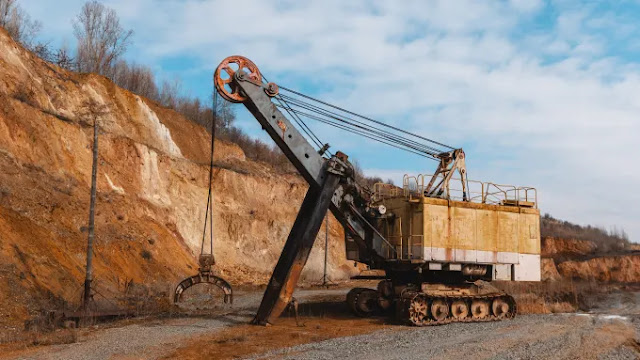Here are the details of Trump's minerals deal with Ukraine and how the conflict is affected.
Before signing the eagerly anticipated minerals deal on Wednesday, Ukraine was able to negotiate some better conditions with the US.
After weeks of contentious negotiations that occasionally went sour and momentarily suspended Washington's help to Ukraine, the natural resources accord was ultimately reached late on Wednesday.
Although Kyiv failed to include American security assurances in the deal, it finally persuaded US President Donald Trump to renounce some of his main demands.
In contrast to some of the previous drafts, which Ukraine's leader, President Volodymyr Zelensky, characterized as the US requesting that he "sell my nation," Ukrainian authorities hailed the final agreement as an equal collaboration between Kyiv and Washington.
According to CNN, the inked agreement does seem to be better for Ukraine than some of the earlier iterations. What we know is as follows.
What is at stake?
Aid: Importantly, Trump has long presented the pact as Ukraine "paying back" the US, but the treaty does not require Kyiv to compensate the US for the help it has already received.
In return for the help it has already given Kyiv, Washington first requested a $500 billion share of Ukraine's rare earths and other minerals. Trump referred to Zelensky as "a despot" when he rejected that notion.
The deal signed Wednesday, however, states that future U.S. military aid to Ukraine would be included in the US investment into a joint reconstruction investment fund, which will be used to invest in Ukraine's natural resources.
Following the signing of the minerals agreement in Washington on April 30, 2025, Ukrainian First Deputy Prime Minister Yulia Svyrydenko and US Treasury Secretary Scott Bessent pose. Yulia Svyrydenko/Reuters/Facebook
Natural resources: The agreement stipulates that Kyiv would have the last word over what and where is mined, while the US will have preferred rights to harvest minerals in Ukraine. Additionally, Ukraine will continue to possess the subsurface.
"Ukraine owns all resources on our land and in our territorial waters. Ukraine's Economy Minister Yulia Svyrydenko, who signed the agreement on behalf of her nation, stated that the Ukrainian state makes the decisions on what and where to extract.
Additionally, the pact inked on Wednesday covers a wide range of natural resources, including gold, copper, natural gas, and oil, even though Trump has called it a "rare earth" deal.
The tone: In a victory for Ukraine, the agreement also uses forceful language on the conflict with Russia. In contrast to some of Trump's earlier untrue claims that Ukraine and Zelensky were to blame for the war, it identifies Moscow as the aggressor in the fight.
The pact also states that it aims to create "a peaceful, independent, and resilient Ukraine," which is a significant departure from Trump's earlier statement this year that "Ukraine may be Russia some day."
EU guarantees: By stating that investments must be done in compliance with Ukraine's responsibilities as an EU candidate state, it also maintains the possibility of Ukraine joining the EU in the future. It further states that this agreement would be renegotiated "in good faith" if Ukraine were to join the group in the future.
An advantage for the US: However, the agreement's clauses also demonstrate that the US has gained a number of benefits.
It "signals clearly to Russia that the Trump Administration is dedicated to a peace process based on a free, independent, and prosperous Ukraine for the long term," according to a statement from US Treasury Secretary Scott Bessent, who called it a "historic economic cooperation."
According to the agreement obtained by CNN, Ukraine will not impose any taxes or charges on the profits and any payments made as part of the transaction.
Additionally, it states that the agreement will set a precedent in the event that its terms contradict with Ukrainian law.
What is lacking from the offer?
Security concerns: As part of this deal, Ukraine has renounced its main demand that the US offer security guarantees. Zelensky and Trump finally met angrily in the Oval Office in February as a result of this demand.
Zelensky declined at the time, but Ukrainian authorities have subsequently stated that they think Washington will become more concerned about Ukraine's security as a result of US investment and American businesses operating in Ukraine.
US exclusive access: Although the agreement guarantees the US preferential access to Ukraine's mineral resources, it makes no promises on exclusive rights.
Existing resources: Because the agreement only covers new projects, both the US and Ukraine will need to make investments in order to make money. Excluded are mining activities that are currently making money for the Ukrainian government.
This provision casts doubt on the agreement's advantages for the US. Although Ukraine has vast quantities of a number of important commodities, some of them are costly and technically challenging to extract.
Some minerals, like titanium, lithium, or graphite, might be produced rapidly provided the areas where the deposits are located are safe, according to Gavin Mudd, head of the British Geological Survey's Critical Minerals Intelligence Centre, who spoke to the non-profit Science Media Center.
It will take years to ramp up capacity in the rare earths case, though, as research will be required to evaluate and decide how best to mine the deposits, process the ores, and create rich concentrate. Additionally, a new refinery will be required to produce high purity metals and oxides for use in a variety of technologies. He said, "All of this is in addition to the necessity of actually mining the minerals."
Then, Trump declined to offer security guarantees, stating that he preferred Ukraine to sign the deal first and discuss guarantees at a later time.



.jpeg)

